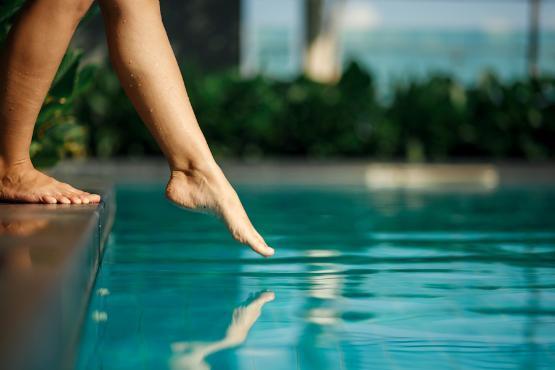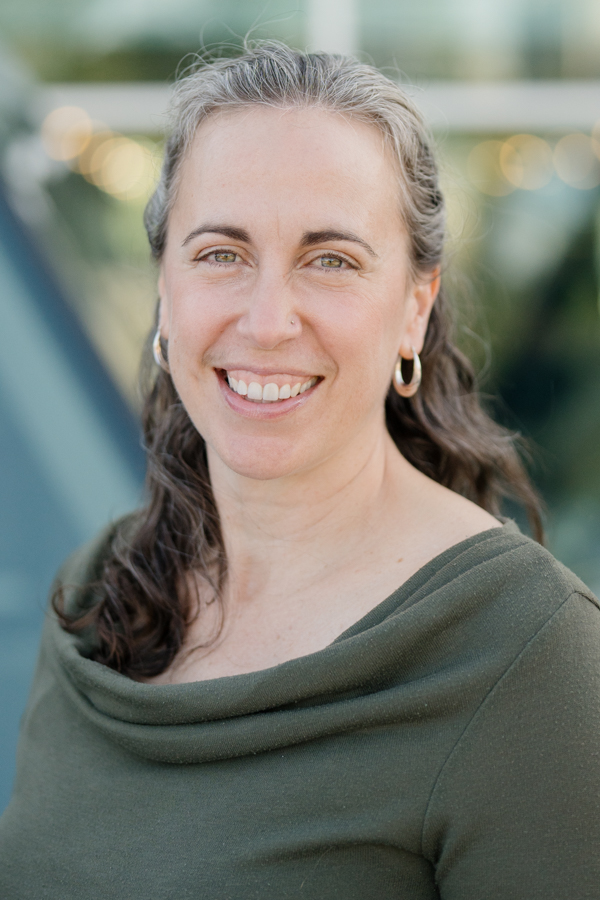Note: This article originally appeared in the Summer 2020 issue of CRUX.1
Growing up, I was going to be an Olympic swimmer. I was, granted, only on the YMCA team, but it was a good YMCA team. I vaguely remember a rumour that Janet Evans had practiced with us; although looking back now that makes no sense since she lived, swam, and excelled in her unusual freestyle stroke in California, and I was on a YMCA team in a small town in New York ... But true or not, we claimed her with pride. When I was seven, I won a trophy for being the youngest girl on the team. Participation awards have been going a lot longer than we realize! But I displayed that “Littlest Mermaid” trophy with pride, anticipating greater things to come.
By the time I was nine, I was crushing it in the 50-yard breaststroke, and then at ten, I reached my pinnacle. I made it to the state championships (YMCA-level states, that is, which might be the only variety at that age, I don’t know, but it was a big deal in my rural-girl world). I had no competition on my team in breaststroke, but I would stay after practice, drilling and perfecting and practicing on and on. My dreams were in reach. I had broken 40 seconds for the 50 breast and was hovering at 38.something seconds. Now, keep in mind, these were the days before automatic timers, before buzzers and touch pads. They shot a gun to start us (a starting gun—no bullets or anything that adventurous!), and people standing at the end of the lanes started a timer with the gunshot and then leaned over your lane to stop the timer when you touched the wall. It was invariably ... inconsistent. Many a race was called in favour of a swimmer who clearly came in first but whose timer forgot to start their stopwatch.
That year, nationals was to be in California, I believe. Or somewhere equally ridiculous to a ten-year-old. But my mom dutifully agreed that if my coach would submit me, she would take me. I practiced. Oh, I swam till my lungs burned and my hair turned green. But I couldn’t drop that last .something off the qualifying time of 38 seconds. Given the inconsistency of timers, standard practice of the day was that if you were within a few hundredths of a second, coaches could and would fudge off those last bits and get favoured swimmers into the races. But my coach suddenly developed a conscience. If I couldn’t break the 38-second mark, I wouldn’t go to nationals. And so the season ended. And so my dreams died.
I never practiced with that passion again. I continued competitive swimming right up through high school. In eighth grade, I was moved up to the high school varsity team, and my coach was Ileana Lochte, Ryan Lochte’s mother. Ryan, a young punk of a kid at the time, would occasionally swim with us, mostly horsing around and causing problems. When you’re fifteen, a nine-year-old is unbearably immature, so I never paid him much mind, but I suppose Ryan is technically my closest brush with fame as he did, indeed, go on to Olympic greatness in the pool. Maybe if the local science teacher hadn’t decided she wanted to be head coach instead of Illeana, or “Ike,” as we called her, I might have had a second chance at greatness under this woman who had transformed our swimming program into a championship team. But, alas, I only had one year with her. My swimming career went on being moderately good, no more than that, under “Coach.” I made it to Sectionals (the championships for our region of the state) pretty much every year for 100-yard breaststroke, but a strained rotator cuff ended my junior year season, and wrecked knees (thanks to an un-rehabilitated injury in the summer) hurt my senior year season. I did at least graduate on the high of going to Sectionals for three events: a relay, 50-yard freestyle, and 100-yard breaststroke. I ended with (moderate) glory, or at least respectability.
Davidson, my undergraduate school, was Division 1 for all sports except football, and I just no longer had the passion for two hours of swimming in both the morning and the afternoon. I did band, orchestra, and chorus instead—you may ponder the effects of those choices on my collegiate social life. I also fell in love with my Latin professor, accidentally ending up with a degree largely in Classics. So, I suppose you could say it was thanks to Coach Bliss who crushed my dreams when I was ten, and Dr. Neumann who was far too good a teacher for my own sense of career direction, that I am an academic instead of an Olympic swimmer. These days I’m proud of my once-a-semester swim at UBC pool, where I regularly get sucked into existential contemplation about the meaning of “fast,” “medium,” and “slow” lanes.

